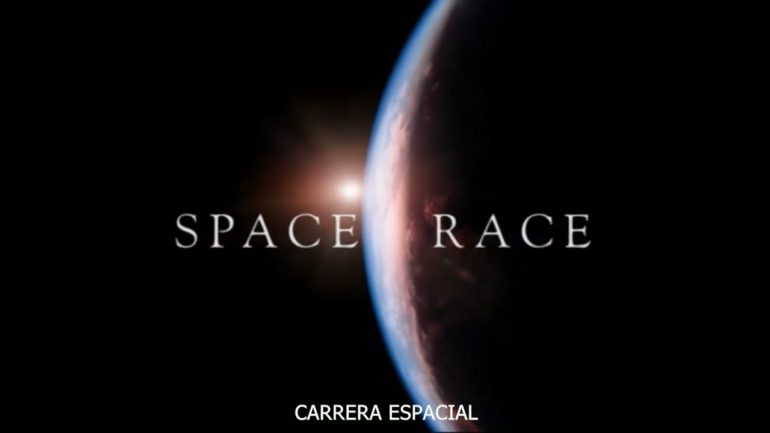Space Race is a four-part documentary drama series that was released by the BBC in 2005. It chronicles the major events and characters involved in the historic space race that occurred between the Soviets and Americans during the cold war. It was a race to see who could be the first to put a man on the Moon. Focusing on the Soviet chief rocket engineer Sergei Korolev, and his American counterpart Wernher von Braun, we see how the two sides pushed the boundaries in order to come out on top of what would become the single greatest technological advancement the human race had ever seen. Throughout history, the notion of leaving the Earth was deemed an impossible fantasy. That was until these two great scientists had one all-consuming passion, to be the first into space.
Episode One: Race For Rockets (1944–1949)
In the first episode, we witness the incredible results the Nazis were having during the last years of WWII with regards to designing the rocket known as the V-2. As the Second World War was coming to an end both the American and Soviet forces were frantically trying to capture this German rocket technology. However, it was the Americans who gained the upper hand as they captured Wernher von Braun and most of his senior staff, along with their technical documents and many other valuable resources. We also learn of how Sergei Korolev had been in a Russian Gulag, but was later released in order to act as the Soviets rocketry expert alongside his former colleague Valentin Glushko. They were tasked with bringing the Soviet rocket technology up to date with that of the Americans.
Episode Two: Race For Satellites (1953–1958)
As the Cold War begins to ramp up we see how Korolev is asked to develop a rocket that is able to carry a five-ton warhead to America, as a result, he designs the R-7 Semyorka, the first intercontinental ballistic missile (ICBM). This rocket becomes responsible for launching the first satellite, Sputnik 1. However, in America, we see how von Braun struggles to get permission to launch a satellite of his own.
Episode Three: Race For Survival (1959–1961)
Things start to come together as both the Americans and Soviets are now planning a manned space flight, we witness how both sides prepared to do so. The two projects were known as the Vostok programme (USSR) and Project Mercury (USA). After many difficulties were encountered on both sides, the Soviets managed to succeed in putting the first man in space Yuri Gagarin. The Americans were quick to follow suit in putting Alan Shepard into orbit.
Episode Four: Race For The Moon (1964–1969)
The race is now officially on and both sides intend on being the first to put a man on the Moon. The Americans pull ahead in the race with Project Gemini, but suffer a tremendous blow with the Apollo 1 fire. However the Soviets encounter their own problems when Glushko and Korolev permanently fall out in an argument over fuel. Korolev later dies during surgery and Gagarin dies in a jet crash. Ultimately the United States win the Space Race after successfully launching the first manned lunar mission, Apollo 8, and the first manned lunar landing, Apollo 11.
Directed by: Christopher Spencer , Mark Everest





“…at a time when so many people were starving and dying.”
People are ALWAYS ‘starving and dying’.
It no reason to hold back the march of progress.
Strange to look back at how so many people thought it was so important at the time. Nowadays it’s like ‘what? – who cares?’ I suppose it wasn’t a total waste of time money and lives as it led to the development of some crucial technologies but really – what a absurd diversion at a time when so many people were starving and dying.
Why can’t we all just get along.